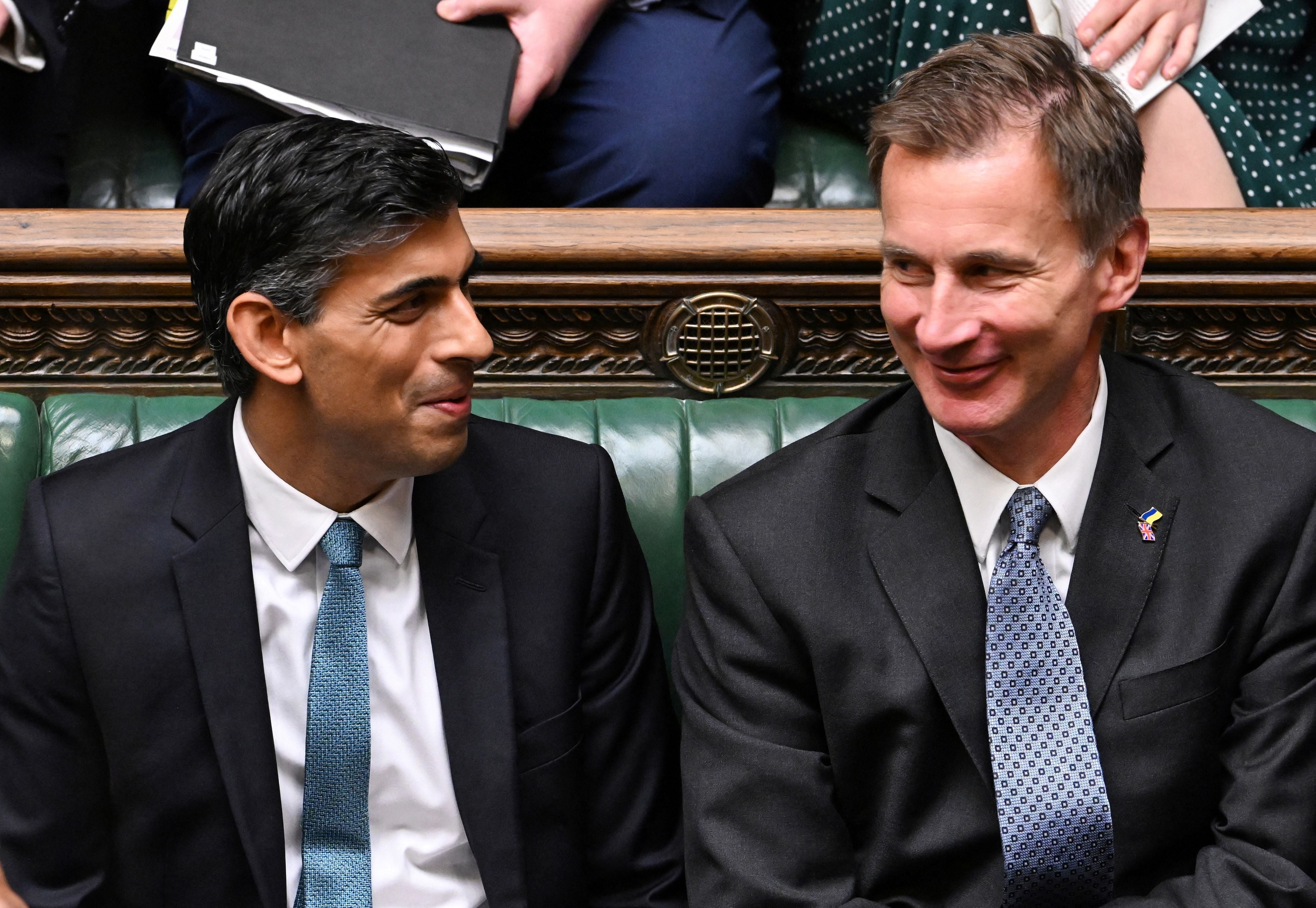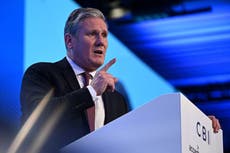John Curtice: What does the autumn Budget mean for the next election?
Has Jeremy Hunt and Rishi Sunak’s package persuaded voters? John Curtice explores


Your support helps us to tell the story
From reproductive rights to climate change to Big Tech, The Independent is on the ground when the story is developing. Whether it's investigating the financials of Elon Musk's pro-Trump PAC or producing our latest documentary, 'The A Word', which shines a light on the American women fighting for reproductive rights, we know how important it is to parse out the facts from the messaging.
At such a critical moment in US history, we need reporters on the ground. Your donation allows us to keep sending journalists to speak to both sides of the story.
The Independent is trusted by Americans across the entire political spectrum. And unlike many other quality news outlets, we choose not to lock Americans out of our reporting and analysis with paywalls. We believe quality journalism should be available to everyone, paid for by those who can afford it.
Your support makes all the difference.The principal aim of Jeremy Hunt’s autumn statement was to reassure the financial markets that it was safe to lend money to the UK government. But a crucial secondary objective was to regain the trust of voters, and thereby reduce Labour’s large lead in the polls.
While the chancellor may have been happy to see the financial markets take his statement in their stride, he will be disappointed that it has failed to persuade voters to return to the Tory fold. Rather, it appears that the modest bounce the Conservatives enjoyed when Rishi Sunak replaced the ill-fated Liz Truss as their leader has now juddered to a halt.
Immediately prior to the autumn statement, the polls on average put the Conservatives on 27 per cent, leaving the party trailing Labour by as many as 21 points. Still, that represented a notable improvement on the 22 per cent to which the party had sunk in the dying days of the Truss administration, a rating that placed the Tories 31 points behind the opposition.
However, in the half a dozen published polls that have been conducted since the statement last Thursday, the Conservatives have slipped back a little, to 25 per cent on average, while the Labour lead has edged up to 23 points.
This means that much of the damage done to the Conservatives’ standing in the eyes of voters by Truss’s brief tenure in Downing St has still to be repaired. The party’s poll rating is still six points adrift of where it was at the end of Boris Johnson’s premiership.
Not that the autumn statement landed as badly with voters as Kwasi Kwarteng’s “fiscal event” of 23 September. The package announced by the then chancellor was widely regarded as unjust. In a survey by YouGov, 57 per cent said they thought it wasn’t fair (just 19 per cent believed it was), while in the case of Deltapoll, 60 per cent said it was unfair (with 23 per cent taking the opposite view). Kwarteng’s big tax cut for those on the highest incomes was notably unpopular.
Jeremy Hunt’s decision to focus his limited largesse on the less well-off has been more favourably received. According to Deltapoll, 42 per cent feel that his package is fair, and only 33 per cent that it is unfair. True, YouGov’s figures – 31 per cent fair, 32 per cent not fair – are not as favourable, but they are still much better than those recorded by the company in September.
Meanwhile, Deltapoll also reports that rather more (39 per cent) feel that Mr Hunt’s package will be good for the country than feel it will be bad (29 per cent) – though nearly a third of voters (32 per cent) are not sure. In contrast, no less than 56 per cent believed that Kwarteng’s “growth plan” would be bad for Britain, while only 23 per cent thought it would be beneficial.
However, in spite of these plus points for the present chancellor, his package has not persuaded voters that it will brighten their financial future, and it has done little to improve their evaluation of the broader economic competence of the government.
According to Deltapoll, just 17 per cent believe they will be better off as a result of the autumn statement, while as many as 41 per cent feel they will be worse off – figures that are little different from those of 20 per cent and 42 per cent respectively after the Truss-Kwarteng mini-Budget. Similarly, YouGov reported that 66 per cent believe their financial position will be worse in the wake of Mr Hunt’s announcements, and only 7 per cent that they will be better off – almost identical to the equivalent figures (67 per cent and 7 per cent) in September.
The forecast by the Office for Budget Responsibility that living standards will fall by a record 7 per cent over the next two years has perhaps percolated through to many voters.
To keep up to speed with all the latest opinions and comment, sign up to our free weekly Voices Dispatches newsletter by clicking here
Meanwhile, YouGov has found that, at 67 per cent, the proportion who believe that the government is handling the economy badly is almost exactly the same as the 68 per cent who were of that view in September.
True, Opinium now finds that voters are evenly divided between those who think a Labour government under Sir Keir Starmer would be better for the economy (31 per cent) and those who think a Conservative government under Rishi Sunak would be (30 per cent). That is an improvement on the position in September, when a Starmer-led government was ahead of one headed by Truss by a margin of 39 per cent to 20 per cent.
However, the gap on that question narrowed as soon as Sunak became prime minister – and was already down to one point before Hunt’s statement. It is unchanged now.
That improvement reflects Sunak’s personal reputation as a successful steward of the economy during lockdown. However, it looks as though neither Sunak’s reputation nor Hunt’s somewhat more favourably received autumn statement is going to be sufficient to restore voters’ faith in the collective economic competence of the Conservative Party. The damage done in September runs too deep for that.
Sir John Curtice is professor of politics at the University of Strathclyde and senior research fellow at NatCen Social Research and The UK in a Changing Europe



Join our commenting forum
Join thought-provoking conversations, follow other Independent readers and see their replies
Comments